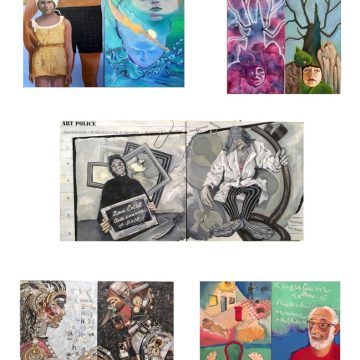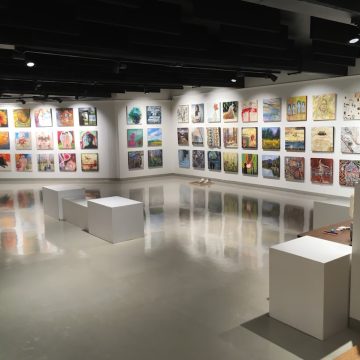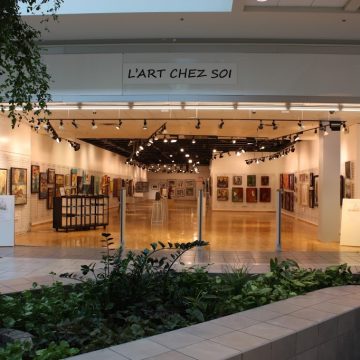The Gallery
Clay, stains
15” x 9” x 9”
C. Ascher
I am in the final stages of the process, a yearly event, of visiting artists’ studios following their submitting dossiers and exhibition proposals. I am looking for artists to feature in next years’ schedules of solo exhibitions at the gallery for which I am the Director/Curator. It is one of my most pleasant tasks as curator because I get to meet and have meaningful discussions with artists about their work in the spaces where they create it, in their natural habitat as it were.
While the artists are nervous to receive me for studio visits, even the most experienced, they are also energized and encouraged. They tell me that no other curators these days bother to conduct studio visits, something which I know because I am an artist too and which always shocks and amazes me. They receive me at first hesitantly, cautiously, but we are soon deep in conversation about their imagery and style, their history and inspiration, their medium and processes, their techniques and their concepts, and about how they situate themselves in the broader artistic community.
The layout of the studios tells me volumes about the artists’ engagement in and preparedness for planning a solo exhibition. I manage a big space. The exhibitions I mount are not commercial, my aim is education, not sales, giving artists the opportunity to focus on presenting or creating a unified body of work to a theme or concept. I also schedule exhibitions a year or more ahead, which means the existing work will not necessarily be the work that will be exhibited. For each artist of six or seven that I contract for a solo in any given year, I don’t contract numerous others. Given all this, it’s my responsibility to make sure the artists I invite for solos are able to meet their targets in terms of professionalism, production and costs (I have misjudged only four or five times in the last 30 years).
Some things about the artists’ processes or intents, themes or concepts are clear and obvious in the individual works themselves. However, the full impact of the artists’ aesthetic and philosophy is only revealed when many works can be seen together, at the same time, as they will be in a solo exhibition. Gazing at one piece then another and another and then at them all together surrounded by the tools and materials of their making is what helps me describe for a public the artists’ processes and the evolution of their creative thinking. For me, it’s the only way to really know what deep questions to ask and, as the artists answer them, how to understand those answers around, through and in addition to my own reactions and assumptions.
What interesting, and sometimes challenging, conversations we have during the few hours the artists and I spend together in their studios! Sometimes it happens in one studio visit, sometimes it takes two or several visits, but when our discussions achieve a real artist/curator harmony, we are on for the exhibition!







